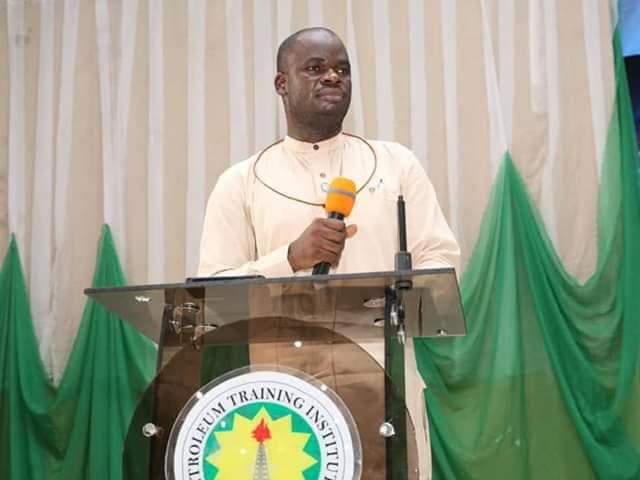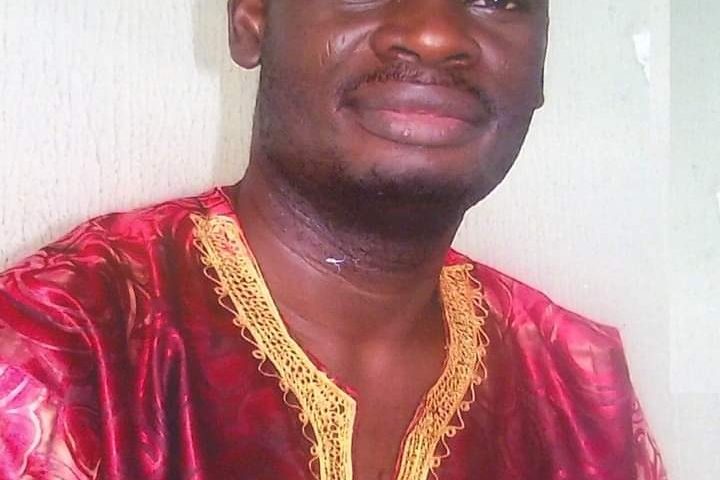By Sunny Awhefeada
A nation’s anthem embodies her hopes, aspirations and ideals. It is couched in the mould of a sublime poem which romanticizes the very essence and ennobling tenets of that nation. An anthem should evoke an uncommon spirit of loyalty, patriotism and belief whenever it was rendered or thought of. Strangely, the present Nigerian anthem “Arise O’ Compatriots” has never evoked the foregoing feelings for my generation. It has never sounded anthemic. The wording and the tone are neither hymnal nor antiphonic. On the contrary, the old anthem, “Nigeria we hail thee” which ushered our parents into independence made so much sense that it emblematizes the Nigerian narrative in all its complexity. I heard the evocative tune of that anthem as a child even though I couldn’t make meaning of it. By the time I was old enough to begin formal education, we were taught to sing “Arise O’ Compatriots”. In spite of being compelled to sing “Arise O’ Compatriots” every morning on the assembly ground for eleven years, my generation bore the echoes of “Nigeria we hail thee” in all its resonance. Its hymnal essence defied erasure.
It was while we were university undergraduates that the full implication of “Nigeria we hail thee” confronted us. As part of its revolutionary rejection of anything that the corrupt military dictatorship of the 1980s and 1990s stood for, the National Association of Nigerian Students (NANS) jettisoned “Arise O’ Compatriots” and adopted “Nigeria we hail thee” as our credo of Nigerianism. Throughout our stay in the university, during which we confronted the most maniacal of dictators, “Nigeria we hail thee” inspired us as our writ of faith. We resorted to it at every gathering whenever aluta called. It was at that point that some of us had cause to ponder and interrogate the essence of the old anthem and the one that supplanted it.
Evaluating the wording of the old anthem vis a vis Nigeria’s narrative curve would indicate how it not only captures the truth of our history, but how it also envisages the ideals that will consolidate the experiment which Lord Lugard put together in 1914. More than four hundred languages make up the Nigerian house. These languages lean over on ethnic or tribal allegiances with very strong cultural differences. As independence approached there were fears of how much cohesion can be achieved among these “tribes and tongues” of Babel. The emerging country was structured into North and South a la amalgamation in 1914. While the North pretended to be one using the scheme of religion and the widespread use of the Hausa language, the South depicted its plurality by manifesting as West and East and later with another called Midwest.
The cracks arising from ethnic differences were there right from the beginning. They got widened as independence drew nigh. Pundits have had cause to retell much of what transpired among the three fathers of Nigerian independence; Nnamdi Azikiwe, Obafemi Awolowo and Ahmadu Bello. We are told that while Azikiwe wanted “to forget our differences”, Bello fired back saying “we should understand” them. Bello had also described the amalgamation as the “mistake of 1914”. On his part, Awolowo described Nigeria “as a mere geographical expression” and pragmatically saw himself first as a Yoruba before being a Nigerian. Of the three founding fathers, only Azikiwe, despite his flippancy and unstable politics, had a pan-Nigerian credential. His National Council of Nigeria and Cameroon (NCNC), later National Council of Nigerian Citizens, was the only party that aspired to the ideals of a national party from 1946 to 1966. Bello’s Northern Peoples’ Congress (NPC) in name and in practice was a northern party. Awolowo’s Action Group (AG) was a Yoruba gathering.
The impediment which tribes and ethnicity posed were addressed in the independence anthem “Nigeria we hail thee” in the very telling lines, “though tribes and tongues may differ/in brotherhood we stand”. Ours is a nation of over four hundred tribes and tongues. This tendency has been at the core of Nigeria’s centrifugal predicament. To mitigate the danger posed by “tribes and tongues”, the founding fathers embraced the concept of federalism which was considered best suited for a society defined by ethnic pluralism. The excerpted lines also sought to obliterate that obnoxious reality. Despite that, our founding fathers dug deeper into ethnic trenches in all that they did. They created two realities; the ethnic and the national, what was to manifest in Peter Ekeh’s “two publics”.
The fault lines of ethnicity have become deeply entrenched in Nigeria. A great deal of what afflicts us today derives from ethnic alignments. Besides the seminal abnegation of Nigeria by the founding fathers, the 1966 coup which ruptured the march to nationhood was anchored on a strong ethnic mooring. The counter coup of the same year and the civil war that followed exhibited the fratricidal dimension of ethnic politics. The return to civil rule in 1979 also saw political party formation along primordial alignments. The long night of military rule was made even darker by the benighted veil of ethnicity.
When the Boko Haram phenomenon began as ragtag hounds, those who should have call them to order saw them as “our people” and railed against the government that wanted to deploy the sledgehammer to crush it. The idea of “our people” provided inoculation for Boko Haram as many Northerners not only spoke in defence of their nefarious acts, but saw them as the mechanism for the Islamiszation of Nigeria to fulfill Dan Fodio’s mission. The emergence of one of “their own” in 2015 gave the North the gusto to see Nigeria as an extension of their estate. To them, the South remains the lady of means that Lord Lugard conceptualized it to be and who must be married to the Northern youth.
The madness of Boko Haram engendered the murderous Fulani herdsmen. It bred bandits and marauders. Yet, for a very long time the North refused to see the evil in their deadly acts. It has been alleged again and again that political and religious leaders fund and support these outlaws. They do not remember the essence of “though tribes and tongues may differ/in brotherhood we stand”. When Sheik Ahmed Gumi spoke recently, he told the bandits that only Christian soldiers usually shoot at them (bandits). He also admonished them not to kidnap hijab wearing female students. He stoutly defended the bandits and directed the State to grant them amnesty. The governor of Bauchi State also rose in defence of the bandits. The defence of bandits was also a hobby horse for his Kaduna counterpart.
The fabric of the Nigerian state is threatened by ethnic tensions. The configuration of the leadership of all government systems has been coloured by ethnic sentiments. That is why the best people do not get into positions where they could utilize their capacity for the good of Nigeria and her people. It is the ethnic card that has bread insecurity nationwide. The merchants of death roaming across the country feel a sense of immunity against sanctions for their heinous crime. So they go on with their dastardly acts and their kiths and kin support them. It was that support that culminated in the laughable food blockade that didn’t last for even a week.
The acute feeling of marginalization and insecurity has deepened the desire to revert to ethnicity. Aare Gani Adams, Mazi Nnamdi Kanu and now Sunday Igboho who see themselves as freedom fighters are products of the crisis of insecurity. The last fifteen years have been awash with calls for a Nigerian rebirth which will come from a reversion to federalism, regionalism, parliamentarianism and the pre-1966 status quo. Sadly and unfortunately, no such call has been made for us to revert to, “Nigeria we hail thee” and remind ourselves that “though tribes and tongues may differ/in brotherhood we stand”. May be, that could be our redeeming ideal.





